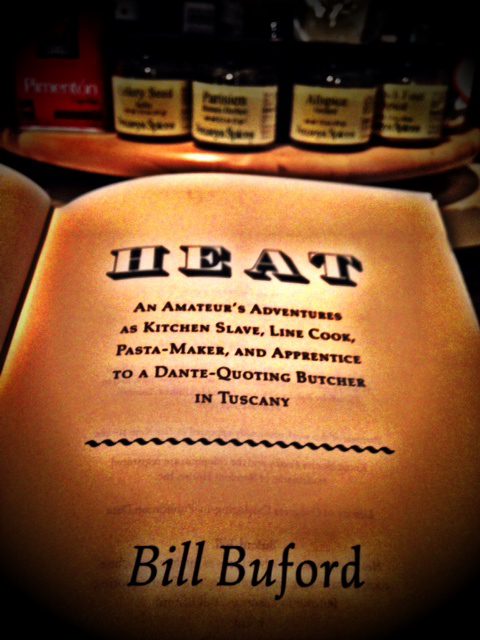How Bill Buford Saved Me From Culinary School
It has long been my ambition to go to culinary school. I know I don’t have the chops or the desire to be a professional chef, but I would love to know how to cook at the level of a professional. Maybe, just maybe, one day I would like to have my own little restaurant. Reading Bill Buford’s wonderful 2006 memoir Heat, in which he undertook the grueling — grueling — task of learning to cook like a professional (in part by interning under the leadership of his friend Mario Batali), cured me of that. Buford writes:
And I realized: no. I did not want a restaurant.
When I started, I hadn’t wanted a restaurant. What I wanted was the know-how of people who ran restaurants. I didn’t want to be a chef: just a cook. And my experiences in Italy had taught me why. For millennia, people have known how to make their food. They have understood animals and what to do with them, have cooked with the seasons and had a farmer’s knowledge of the way the planet works. They have preserved traditions of preparing food, handed down through generations, and have come to know them as expressions of their families. People don’t have this kind of knowledge today, even though it seems as fundamental as the earth, and, it’s true, those who do have it tend to be professionals — like chefs. But I didn’t want this knowledge in order to be a professional; just to be more human.
If you have even the slightest interest in cooking, you need to get this book. I read it when it first came out, and picked it up again last night to flip around in it. After I come up for air from all the assigned reading, I’m going to give it another go.


Subscribe for as little as $5/mo to start commenting on Rod’s blog.